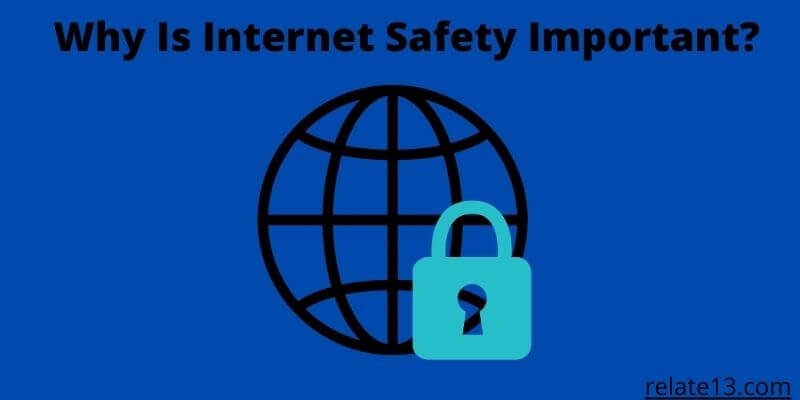The internet is a great resource for kids, but it can also be a dangerous place. That’s why it’s important to teach kids about internet safety. In this blog post, we will discuss some tips for keeping your kids safe online.
Internet safety for kids is important to protect them from inappropriate content, cyberbullying, online predators, and other risks. Here are some tips for keeping your kids safe online:
Why is internet safety important for kids?
When you are using digital technology, it is mandatory to appropriate personal safety. Well, Internet safety is important, especially for kids. There are many reasons why internet safety is important for kids. Here are a few of the most important:
1. To protect them from inappropriate content: The internet is full of inappropriate content, such as pornography, violence, and hate speech. Kids who are exposed to this content can be harmed emotionally and psychologically.
2. To protect them from cyberbullying: Cyberbullying is bullying that takes place online or through electronic devices. It can be just as harmful as traditional bullying, and it can be difficult to escape from.
3. To protect them from online predators: Online predators are adults who use the internet to prey on children. They may pose as someone else, such as a child or teenager, in order to gain the trust of their victims.
4. To protect their personal information: Kids should not share their personal information online, such as their name, address, phone number, or school. This information can be used by predators or identity thieves.
5. To teach them how to use the internet safely: Kids need to learn how to use the internet safely, such as how to identify and avoid unsafe websites and how to protect their privacy.
The Internet can be a wonderful place where you can shop, play games, and do many other things.
If you are a parent or guardian, you can always help your kids by telling them about how to use the internet, teaching them about online dangers, and learning everything about the internet so that your kids will not use the internet in the wrong way.
How to keep your kids safe online?
There are many ways that can help you to ensure internet safety are as follows:
1. Start early
It’s never too early to start teaching kids about internet safety. Even young children can learn basic safety rules, such as not talking to strangers online. You can simply discuss things to do or don’t do on the internet to help them understand the risk.
2. Be a role model
Kids learn by watching the adults in their lives. If you want your kids to be safe online, you need to be safe online yourself. This means using strong passwords, not sharing personal information online, and being careful about what websites you visit.
3. Talk to your kids about the risks
Explain to your kids the dangers of the internet, such as inappropriate content, cyberbullying, and online predators. Talk to them about how to stay safe online and what to do if they encounter something that makes them uncomfortable.
4. Set rules for internet use
Decide how much time your kids can spend online and what websites they are allowed to visit. It’s also a good idea to set rules about what personal information they can share online.
5. Use parental controls
There are a number of parental controls available that can help you to keep your kids safe online. These controls can block inappropriate content, track your kids’ online activity, and prevent them from talking to strangers. You can also set perental control on chrome browers to ensure a safe and scure internet surfing.
6. Monitor your kids’ online activity
Keep an eye on what your kids are doing online and talk to them about anything that concerns you. This doesn’t mean you have to watch over their shoulder every minute, but you should be aware of the websites they’re visiting and the people they’re talking to.
There are number of spy apps available in market to monitor you kid’s online activites.
7. Teach Your Kids about Online Scam and fraud
Teach your kids to be careful about what information they share online. Don’t tell them to share their full name, address, phone number, or school with anyone they don’t know. They should also be careful about what photos they post online.
Encourage your kids to report any suspicious or inappropriate behavior to you or another trusted adult. If your kids encounter something that makes them uncomfortable, they should know that they can come to you for help.
Make sure your kids know how to block unwanted contacts and report cyberbullying. If your kids are being bullied online, they should know how to block the bully and report the bullying to you or another trusted adult.
8. Update your device software regulerly
Keep your software up to date, including your antivirus and anti-malware programs. This will help to protect your kids from malware and other online threats.
9. Password protection
Use strong passwords and don’t share them with anyone. Teach your kids to create strong passwords and never share them with anyone. Social media has its own impact on kid’s nowadays so kid’s should protect their social media accouts with a strong passwods.
10. Tell your kids about the risk of using unsecure WIFI network
Be aware of the risks of using public Wi-Fi networks. Public Wi-Fi networks are not secure, so your kids should be careful about what information they share when using them. Tell them the improtance of a secure wifi network and also make sure you have a secure wifi network at home.
What are the internet safety laws?
Here is a federal law the Children’s Online Privacy Protection Act (COPPA), which helps to protect younger kids that are not more than the age of 13 when they are online.
This law is designed to keep the charge’s personal information without a parent knowing about it or agreeing to it.
Coppa requires a website to explain their privacy policies and it also gets parents’ permission before collecting are using any information about their children such as names addresses phone numbers and other social security numbers. It also asks for your parent’s permission to play a game or enter any contest.
What are online protection tools?
Online production tools basically have your kids access to adult material and it also protects them from internet predators. Many internet service provider ISP provides you a Parental Control option.
You can also get this science of software that helps block access to the side and also restricts personal information from being sent online and all the other programs of the monitor can be tracked online.
The Internet and teenagers
And kids are growing older so as a parent it is getting a little tricky to monitor what you are teenage kids are browsing on the internet, as usual, they carry a smartphone with them all the time and also they need some privacy.
These all things are totally normal but as they are growing older they are also becoming more independent from their parents.
The Internet can also provide you with a safe side and a wrong side it’s totally up to you on which side you are going. Make your kids comfortable so that they can easily share everything about what they are searching on the internet or what they are browsing on the internet.
As a parent you should have to be their friends so that they can share everything with you Usually they love to share everything with their friends.
So with them, we should behave like their friends. So, they will not feel hesitant when they share anything with you.
You may also like:
- How To Lock Your Facebook Profile?
- Best Text message Spying apps for parental control
- How to Lock Your Google Chrome Profile
Conclusion
In conclusion, internet safety is a critical issue that parents, educators, and caregivers must take seriously to protect children from the potential dangers of the online world. As children continue to spend more time online, it’s essential to educate them about safe and responsible internet use and provide them with the tools and resources they need to stay protected.
By promoting internet safety and teaching children to recognize potential risks and avoid them, we can ensure that they can fully enjoy the benefits of the internet without putting themselves in harm’s way. It’s important to remember that internet safety is an ongoing process, and we must remain vigilant and adapt to the changing online landscape to keep our children safe.
By working together and prioritizing internet safety, we can help children develop the skills and knowledge they need to navigate the online world safely and confidently.
FAQs
Q: What can parents and educators do to promote internet safety for kids?
Parents and educators can promote internet safety for kids by teaching them about safe and responsible internet use, setting rules and guidelines for internet use, monitoring their online activity, and providing them with the tools and resources they need to stay protected.
Q: At what age should kids start learning about internet safety?
Kids can start learning about internet safety as soon as they begin using the internet, which can be as young as 2 or 3 years old. However, the level of education and guidance provided should be age-appropriate and tailored to the child’s level of understanding.
Q: How can kids protect their personal information online?
Kids can protect their personal information online by not sharing it with strangers, using strong and unique passwords, avoiding public Wi-Fi networks, and being cautious about what they post online.
Q: What should kids do if they encounter something online that makes them feel uncomfortable or scared?
Kids should know how to recognize and report inappropriate or harmful content or behavior online. They should tell a trusted adult immediately and avoid engaging with the content or person in question.






